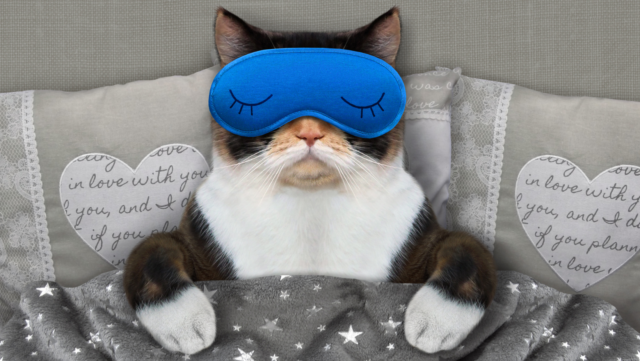
Finding yourself yawning and sneaking in naps during the day? That’s not uncommon. Almost half of all Americans say they feel sleepy during the day as often as seven days per week.
Tryon Medical Partners’ Dr. Jacob Coleman is a clinician with a specialty in sleep medicine. He weighs in with three important facts for getting a restful night’s sleep.
Everyone’s ideal amount of sleep is different.
Dr. Coleman is quick to emphasize that individual sleep needs are unique, influenced by both genetic and behavioral factors such as caffeine intake, light exposure and activity level during the day. Those who are more active during the day or have more light exposure closer to bedtime may experience different desired levels of sleep.
“There is a lot of heavy messaging that everyone needs eight hours of sleep a night, but the
sleep time needed is better thought of as being on a bell curve,” Dr. Coleman says. “Everyone is at a different spot on that curve with most people being in the middle, but some people may have higher or lower requirements than others depending on multiple factors.”
Sleepiness and fatigue are different and should be treated differently.
It’s a common misconception that feeling sleepy, and experiencing fatigue, are the same thing. However, fatigue can result from much more than lack of sleep. There are several factors that contribute to fatigue including mood, medications, other medical problems, sleep, activity level, and others.
Dr. Coleman shares that the first step in evaluating fatigue is often done by the patient’s primary care clinician with an examination of medications, medical issues, and sometimes labs. In the sleep clinic, they look for any gaps in that evaluation and obtain history pertaining to common sleep disorders and habits that may be impacting the duration and quality of their sleep.
“When it comes to sleep and fatigue, it is important to assess what is controllable,” Dr. Coleman notes. “Not every aspect of sleep is changeable, so it’s important to focus on what is.”
If you’re experiencing difficulty sleeping, focus on what you can control.
Just like when addressing fatigue, there are plenty of aspects of sleep quality that we have agency to change. Dr. Coleman recommends focusing on the following to start improving nightly rest:
- Work with your circadian rhythm. Our daily (and nightly) habits are more tied to sleep than we tend to think. Keeping our bodies on a regular schedule with mealtimes, physical activity, bedtime and wake time will naturally aid our nightly rest. This includes avoiding extended naps and increasing exposure to natural light upon rising for the day and at low points in the day.
- Protect the pre-bedtime routine. Our bodies have evolved to be less active at night — the introduction of lights, computers and phones are stimulating our bodies at a time when we are meant to calm down. Dr. Coleman recommends setting an alarm for two hours before goal sleep time, which gives you an opportunity to fully wind down with reading, stretching or other calming activities to set the stage for sleep.
- Use sleep aids when appropriate. Our brains naturally produce melatonin 45 minutes to 2 hours after light exposure stops. Taking a melatonin supplement 1-2 hours prior to goal sleep time may be beneficial in adjusting your internal clock. Melatonin is not a sedative and is less likely to impair any function or negatively alter deep sleep as long as taken properly. However, all sleep aids should be used in conjunction with improving sleep habits as they won’t fix sleep without you also making the necessary behavioral changes. Over time, the intended impact on our brains by sleep aides typically lessens as our brain accommodates to the impacts of the aid. This will put patients back at square one if they have not committed to improved sleep hygiene.
- Take the pressure off of sleep. Too much focus on sleep may cause anxiety and actually make the problem worse. “Sleep disturbances often occur or recur throughout our life. Don’t be too hard on yourself,” Dr. Coleman says. “Focusing too much on what you can’t control will only exacerbate the problem. Start with a series of small changes that will make a big difference in your night of sleep. Sleep issues generally do not develop overnight, and they won’t be fixed overnight either, so one must be patient as they work to improve their sleep.”
Reach out to Tryon today to begin the process of getting a better night’s sleep.

